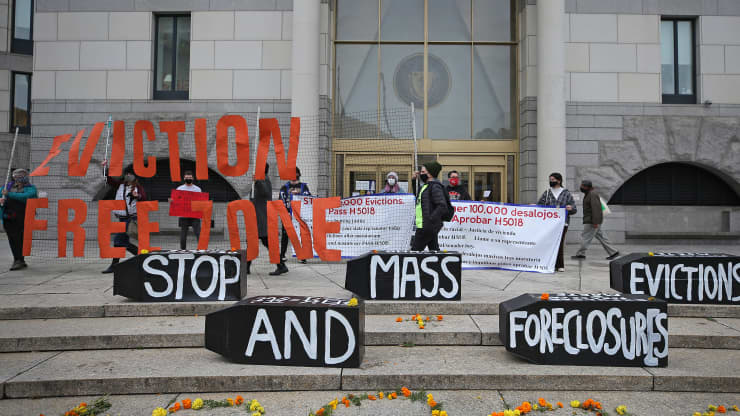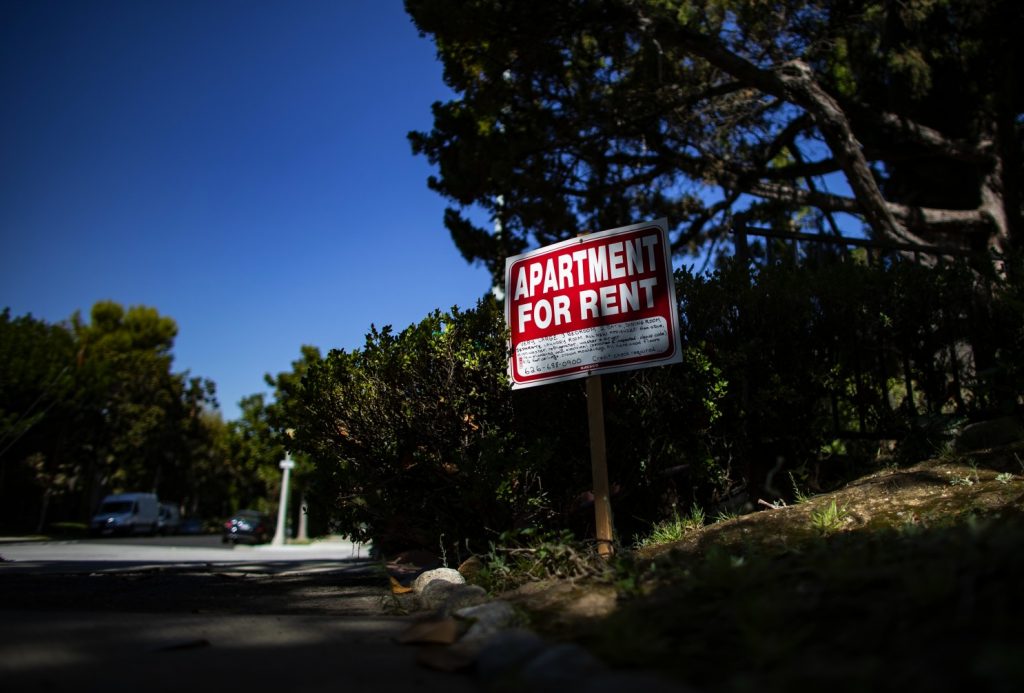
What California Residents Need To Know About The New Rent Payment System
What Will Rent In 2021 Look Like? The 2020 global pandemic has left countries reeling from the devastating after effects of the virus, and businesses


There are many pros and cons that come with living in California, especially if you are renting a space. Renting a house can be exciting and fun; that is until you realize your neighbors are loud and your landlord might actually be the devil. The advantages and disadvantages of California real estate is largely based on the California landlord and tenant laws. There is no exaggeration in this statement as it is the blunt truth. You have a peaceful stay if you and your landlord are happy with each other.
Like most American states, CA has laws which are different and peculiar to only them. In this article, the focus is mostly on the renting laws; that is the rights, and privileges of both landlords and tenants in California. These laws are to be paid attention to if you want to have an enjoyable stay in your rental property. A rental unit in which the landlord is always causing commotion or harassment to its tenants is punishable under CA laws and the same goes for the tenant if the agreement signed isn’t followed through.
In order to prevent the abuse of one’s rights, it is important you know and understand the renting laws that govern this particular state and its limitations. For example, in California, a landlord cannot legally evict a tenant unless He/she files an “unlawful Detainer” lawsuit against the tenant. This is a tenant’s right under the law and if any landlord tries to infringe on it, the tenant can sue him to court and most likely win.
The housing/renting laws that govern the state of California are as complex as they are plenty. In an attempt to reduce the unavoidable stress you will encounter when learning these new and complicated laws, we have researched and made available a simple, yet informative list of things that landlords can and cannot do in the state of California.Knowin
If you have ever rented an apartment, you probably understand the fact that paying for a house does not necessarily mean that you can do whatever you want to the house whenever you want it. There are numerous laws that limit your rights, but inherently increase your landlord’s when living in his/her house.
These laws might seem very unfavorable to tenants but they happen to be of great advantage to the landlords so they don’t lose the returns on investment they ought to get from their rental property. However, there exist several laws that work in favor of the tenants as well and serve as limitations on landlords to prevent abuse and harassment.
Before examining the limitations the law places on landlords, it is best to know the laws that give landlords the right to boss tenants around without any repercussions. Below are five legal rights that grant home-owners this sometimes intoxicating power.
The termination and eviction rules in California are a set of laws that control how and when a landlord can and cannot terminate a tenancy agreement. There are some situations where the landlord has every right to give his tenant a quick notice before he files for a proper eviction.
A quit notice gives a tenant about three to five days to move out of the rented building. If you the tenant decides to stay longer than the stipulated time, your landlord has every right to sue or worse, get you arrested. If you allow the situation to get to this stage, the result would not be friendly at all and would have a severe effect on you if you are to move to another house.
The unconditional quit notice law is applicable in cases where California tenants are renting out apartments, or subletting their rented space without the permission of the landlord. There are also other aspects to which this law is meant to be activated but basically the above are the major reasons although some landlords happen to have other selfish interests as well.
The state law allows for the choice of whom a landlord can allow staying in his/her property to be subject to the landlord only. The choice of whom to stay in the property is dependent on the income level, credit cheese, rental history of former units, assured guarantees, amongst other things the Ontario Human Rights Code Regulations allow.
Although the state makes the rules, the owner of the property will still be the one to make the final choice after considering all the factors provided by state law. This consideration will be the core values by which the landlord can then select tenants that would occupy the rental property.
Landlords are not allowed under state laws to select tenants using the factors of ethnicity sexual orientation, marital status, religious beliefs, deformity, age, sex, amongst other things. However, some of them are still guilty of doing this as the choice of the tenant at the end of the day is theirs to make but they stand to be punished by state law if the issue gets reported.
The responsibility of maintaining the house and issuing it outfalls on the landlord. The safety of the tenant and repairs of all appliances are also part of it. The rental property is to be clean and sanitary enough for tenants. Services such as electricity, water, and adequate trash collection must also be implemented by the landlord.
Also, after the signing over of a rental unit via a lease agreement, the property is to be made vacant for the new tenant to move in. Failure to do this might result in the new tenant taking legal actions against the landlord for not following the agreement set by the lease.
Nevertheless, most landlords do not default on this except on rare occasions. Most times, people who have no homes go to squat in empty houses. This might be to the detriment of the landlord especially if the rental property has been leased out. So he/she can decide to take the case to court and get paid as regards damages.
The collection of rents is every landlord’s dream which is a good thing as so much money goes into house maintenance. The landlord signs a lease or agreement of tenancy with the tenant after he/she has moved in. This agreement is of great interest to both parties as if there should be any case in the future, there would be evidence to show that the house truly has been let out to the tenant.
The signing of this document allows for the owner of the property to collect a deposit equivalent to the amount payable for the duration of one month or one week the lease is to last for.
Once the rent expires, property owners are allowed to collect rent in full on the exact day the previous one expired. Also, they are allowed to increase rent once a year but there are rules and guidelines they have to follow in doing this.
In Los Angeles and under the California law, landlords are obliged to collect a security deposit from the tenant. In the real sense of it, the amount is not for the landlord but it only falls back to him on occasions like a failure on the part of tenants to pay rent, damages of the rental unit, or a breach of the landlord-tenant agreement.
All state laws are to be followed strictly by all owners of rental property. There are rules regarding the amount of the security deposit in relation to the maximum landlords can take to avoid over-collection, rules in case of change of ownership, rules in regards to storing the amount, etc.
The security deposit cannot be abused by the landlord as there are allowed deductions by state laws concerning which the money should be used. This is because the house can be sold over to another person or the tenant might need to move out and a refund would be required. All of the state laws regarding this are to be taken and done with extreme caution and if there is any slack in it, the landlord only stands to face legal charges.
Every landlord is allowed entry into his rental property by the California state law. For this law to be implemented the landlord must provide a written notice to the tenant. The written notice grants a legal pass/permission to the landlord within a clearly stated period of time. The written notice must contain the following details; purpose of entry, time of entry, approximate hour needed, date of entry.
The notice must be delivered to the tenant verbally or in written form. In a situation where the tenant isn’t available at that moment or has traveled, a notice can be left under the tenant’s entry door where it will be spotted easily, or with a person of suitable age.
There is no need for written notice when the landlord’s purpose of entry repairs. There are also other exceptions where the landlord is given the right to enter vis-à-vis emergency situations that might serve as a threat to the wellbeing and security of other tenants. Although landlords are California landlords must give at least 24 hours prior notice before entering any rental unit. The law doesn’t tell them how this notice is to be delivered but the most common means used is by writing.
In California law, harassment by landlords is greatly frowned upon. It is a punishable offense even. Harassment according to law entails all forms of coercion, force, fraud, or even intimidation to force the tenants to move out of the rental property or reduce the tenant’s right to enjoy peaceful existence in the rental unit.
Landlords are not allowed to remove the belongings of tenants, cut tenants out of utilities, enter the home with force, etc. All of this is counted as harassment and is a punishable offense under California law.
Any landlord who has harassed his/her tenants would have to pay penalties up to $2,000 for each of the harassment charges filed against him/her under California Civil Code § 1940.2. Other cases are accounted for harassment charges under California Civil Code §1940.35.
A vital thing all CA landlords must-do for tenants is to sign a written notice of who the landlord is. This signing is done even before the tenancy agreement is signed and prior to the tenant moving into the house. The importance of this can’t be overemphasized. In certain States, people are scammed out of their money due to dealings from the back with people who are not the property owners.
CA therefore made this important law to protect its tenants against such treatments. The disclosure of property from its owner should include such details as the name and address of landlords or other individuals capable of ensuring house repairs and rent collection. In case of any legal fracas, the tenant would know who and who to sue when that ensues.
The property owners are also obligated under state laws to inform a tenant of any change in ownership or any change whatsoever which might affect the tenant in the nearest future.
With the law backing tenants, in this case, any form of Retaliation by the landlords after a case of harassment has been filed against them is contrary to California law. Under the law contained in California Civil Code §1942.5, which is known by most as the state law on anti-retaliation, no landlord should harass their tenant in any form after a case of harassment against such landlord has been filed.
This law views such things as reporting or threatening to report any tenant to immigration authorities, sudden rent increases, cut-off housing utilities, etc. as a retaliation due to the charges laid against them.
Any violation of this law would automatically make such a landlord only bring ruin to him /her. They become liable to pay for damages both actual and punitive totaling up to $2,000 as well as a heap of fees to be paid to their attorney. Failing to pay all of these charges is also an offense under state law. This state law works in favor of tenants in no little measure.

Landlords within the state are liable to follow California law guiding landlord and tenancy agreement. This liability can be let go on occasion of change of ownership which the landlord has to provide the tenant with a written notice stating the change of ownership.
The former landlord only gets free of such liability on that occasion. With the new development, the new landlord becomes subject to all state laws regarding landlord – tenancy agreement and the lease agreement as well. The new landlord can decide to evict the tenants but have to do so within the confines of the law and after a well-deserved notice prior to the eviction.
However, California civil code obliges tenants to pay a security deposit and the landlord only is responsible for its collection. Now with such ownership change, the former property owner can either transfer the amount accruable after deducting the costs allowed by the state to the new owner or inform the tenant in a written notice of the transfer. Or just return the security deposit to the tenant excluding all state allowed deductions.
It is said that there are two sides to a coin. Much as state laws confer such benefits or privileges to CA landlords, they are not so biased as to forget the tenants who are to acquire the rental property.
These laws are mainly to protect the tenants and serve as limitations against the landlord which is a good thing in its rights. I say this because the landlords also have rights that give them so much power as we have examined in the previous section of this article.
There are state laws that confer many limitations on property owners and indirectly empowering tenants against abuse. These laws are vast hence; we will take a few of the most important ones that are mostly experienced by landlords.
As a tenant in California, you must have had several experiences with your landlords. Now with MyRentTree, tenants have a platform to air their grievances without being afraid of charges of defamation being laid against you. If your landlord happens to be one of the good ones, a word or two from you would be of help to some other person.
Also if you are a new tenant and in need of a good home in California can get help or assistance as to which of the landlords are the best of the bunch. Some landlords are very strict when it comes to their eviction process and you wouldn’t want to encounter that in your new home.

What Will Rent In 2021 Look Like? The 2020 global pandemic has left countries reeling from the devastating after effects of the virus, and businesses

Whether you’re looking to buy, sell or rent a home in Los Angeles, know that you’ll always have some competition – not just because the